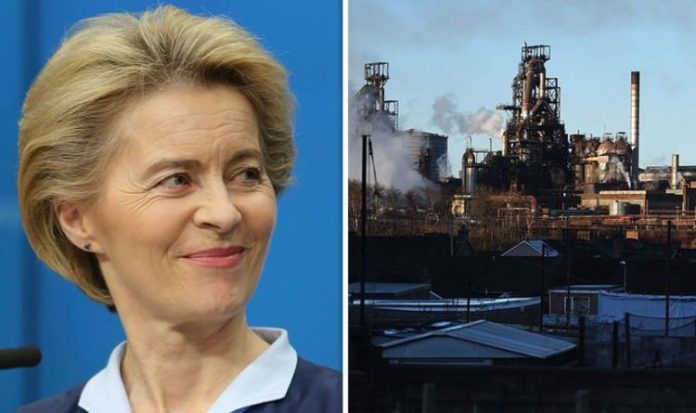After almost a year of negotiations and multiple missed deadlines, Britain and the EU secured a post-Brexit trade deal last month. Announced on Christmas Eve, Prime Minister Boris Johnson described it as a “jumbo Canada-style” deal and declared: “All our red lines about returning sovereignty have been achieved. “Everything that the British public were promised during the 2016 referendum and in the general election last year is delivered by this deal.
“The deal is fantastic news for families and businesses in every part of the UK. We have signed the first free trade agreement based on zero tariffs and zero quotas that has ever been achieved with the EU.”
Two days before the end of the transition period, January 1, MPs overwhelmingly approved the agreement in a parliamentary vote.
As Britain begins its new chapter outside the bloc, in an exclusive interview with Express.co.uk, Conservative MP John Redwood has shed light on the numerous opportunities Brexit will bring in the near future.
In particular, the prominent eurosceptic, argued the steel industry will greatly benefit from Britain’s departure.
He said: “I hope we can have much better policies now we are in charge of our own grant and tax regimes, which were of course under EU control in ways which usually favoured continental producers.
“I am data driven on the economics. I looked at the facts and it was very interesting to see that 20 years before we entered the European club, we had a growth rate twice as high as the growth rate we have been enjoying in the single market.
“And if you take the first decade of that membership, there was a very big collapse in the steel industry.
“The car industry halved in volume.
“Margaret Thatcher had to patiently rebuild that in the Eighties, getting Japanese investments in.”
The UK wasn’t ready for the shock of tariffs free from the continent, the MP added, and as a result when the UK joined the EU we had a 45 million tonnes-a-year steel industry, today we are ‘battling” to save an 11 million tonnes industry.
Steel was not the only industry greatly damaged by entering the European Economic Community (EEC), though.
According to Mr Redwood, EEC membership also led to the slow death of England as an apple-growing country.
Mr Redwood said: “I remember the structure of our orchards very well.
“I am originally from Kent, and I remember it being called the ‘garden of England’.
“There were many, many orchards, producing not just Bramleys but also the famous Cox and other great eating apples.”
JUST IN: SNP’s independence bid crushed: ‘Don’t even have money for buses’
“There’s just been too much competition coming from Europe [mainly France and Italy].
“Fruit farmers in England have had a tough time.
“But we believe that people will fall in love with English apples again.”
She added in her interview with The Guardian: “So many apple farmers are taking their trees out in this country [because they’re not commercially viable].
“[But] once you’ve taken an orchard out, it’s very hard to get it back in again. It takes a long time to get an apple tree back into fruition. We’ve made the choice to stay in [the sector] and expand [into other areas]. We’re thinking long term.
“Hopefully we can start to turn the tanker around.”







